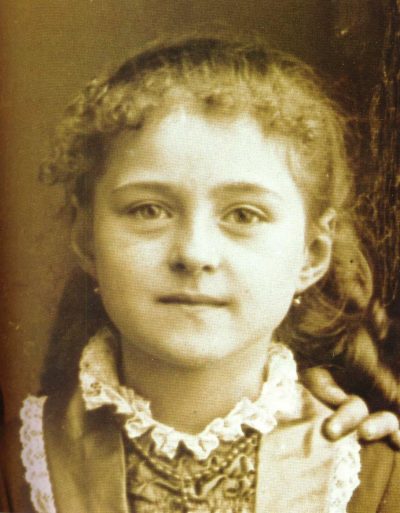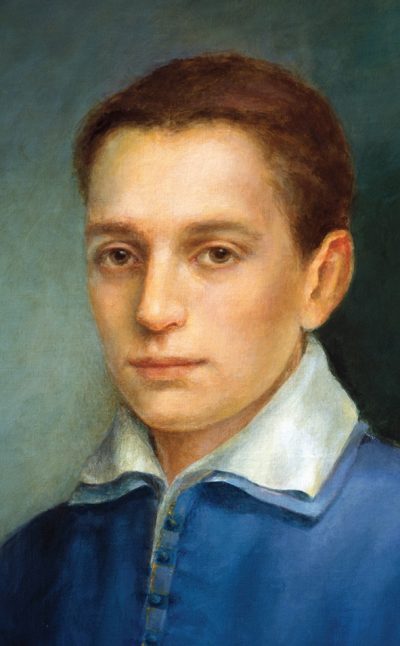Neurosis, Mental Suffering . . . and Grace

Caryll Houselander (1901 – 1954) writes out of her own experience, and gets it right. Miss Houselander refers to the childhood experiences of Saint Stanislaus Kostka and Saint Thérèse.
My childhood experience of anxiety neurosis has conditioned my attitude towards psychological suffering during my whole subsequent life. I know the terrible reality of it, which I think that no one who has not experienced it can. The experience left me acutely aware of psychological suffering in other people, even when I was still a child, and it is largely my experience of these people and their suffering that has confirmed my faith in Christ in man, which in a sense is what the Catholic Church is. Also, combined with long study of this kind of suffering in others, my own experience has convinced me that the only real cure for it is the touch of God. Contact, resulting in union with God. I am not speaking of clearly pathological cases or cases of insanity, but of that mysterious torment which comes from within oneself, and which in spite of the vast mass of experimental psychiatric treatment that is being used today, still baffles the medical profession, and usually defeats it.
Many of the lives of the Saints strengthen this conviction. Again and again we read of Saints who suffered acute and critical psychological illness, who at one stage seemed doomed to become failures as human beings, incapable of happiness, incapable of living fully, yet who at the “touch of God” recovered completely, to live gloriously.

Everyone knows the story of the illness of St. Therese of Lisieux, which was cured by a smile from Our Lady, a smile which not only dispelled the terrors afflicting the child but changed her from a tortured, oversensitive, neurotic to a person of extraordinary emotional and mental balance. There is a parallel to her story in that of the little Polish boy who lived hundreds of years before her—St. Stanislaus Kostka, who was cured of a nervous breakdown when Our Lady appeared to him and put the Infant Christ into his arms. He recovered, to become one of the gayest and liveliest of Saints, rejoicing in all that is beautiful on earth as well as in Heaven, living to become the patron of youth, and to make himself beloved to youth for all time, by his joie de vivre. There are many other Saints too, who might have been neurotic instead of being saints but for a moment when God came to them, and their complete surrender to Him when He came.
Certainly everyone who is cured of a neurosis does not become a saint (I did not, as you will learn), though everyone could do so, if all surrendered to God as the Saints did. But all the evidence we have points to the fact that only God, brought to the tormented soul, somehow, by someone, can permanently cure psychological suffering, and then only if the will of the sufferer responds to God.
The “cure” is not, therefore, confined to the chosen few who receive direct visitations from Heaven; it is available to everyone. Certainly God can choose to come to any particular man in whatever way He wishes, and in the case of those who are deprived of the Blessed Sacrament for any reason—such as inculpable ignorance, or being in circumstances that put them out of the reach of a priest—He can, if He does wish to, come in extraordinary ways.
One thing, however, is certain; when He comes, He will always come in the way that the particular soul can most easily realise and most easily respond to, and which is least likely to be confused with the possibility of hallucination. The ordinary way—and how amazing that it is the ordinary way—is in the Blessed Sacrament; this is the way that even little children can realise, it is as simple to accept as the bread on the table, and it is the way that Christ Himself desires to come. That, surely, is one reason why He has given Himself to the Church, not only into the hands of Saints, but into the hands of all kinds of men, many of whom are sinners.

On the night before He died, when He instituted the Blessed Sacrament, He gave Himself for all time into the hands of Peter—and into the hands of Judas. A further reason why this way, the way of Communion with Christ in the Blessed Sacrament, is of such great value to those who are tortured by psychological suffering, is because it necessarily involves other human beings; someone must bring Christ to the sufferer, someone must give Christ to him. There are other ways, too, by which Christ has made Himself man’s gift to man; the Mystical Body is planned for that. But this way, through sacramental communion and the Sacred Host, is at the heart of the mystery of God’s love, and from it flows every other communion and Christ-giving between men.
It is because the psychological sufferer is always cut off, isolated by his self-torment, from his fellow creatures, that this is so valuable to him. God must be brought to him by another man; only God can reach that centre of his soul that must be touched if he is to be made whole, but God chooses to come to him in Communion only if he will receive Him from the hands of a fellow man. I have spoken of the “cures” of the Saints, because in them we can see what happens when the sufferer surrenders self to God wholly and immediately: the cure too is immediate—complete and lasting. Ordinary’ people who are not saints rarely surrender themselves so completely. It is likely to be a more gradual process; it may be only after many Communions that they will even begin to know God as He really is, well enough to dare to abandon themselves to and for Him. (Caryll Houselander, A Rocking Horse Catholic, 1955, Sheed & Ward, New York)

Thank you for this, Father! I was looking for something related to mental suffering and the Eucharist, to give to an acquaintance of mine, and this is an answer to my prayers!